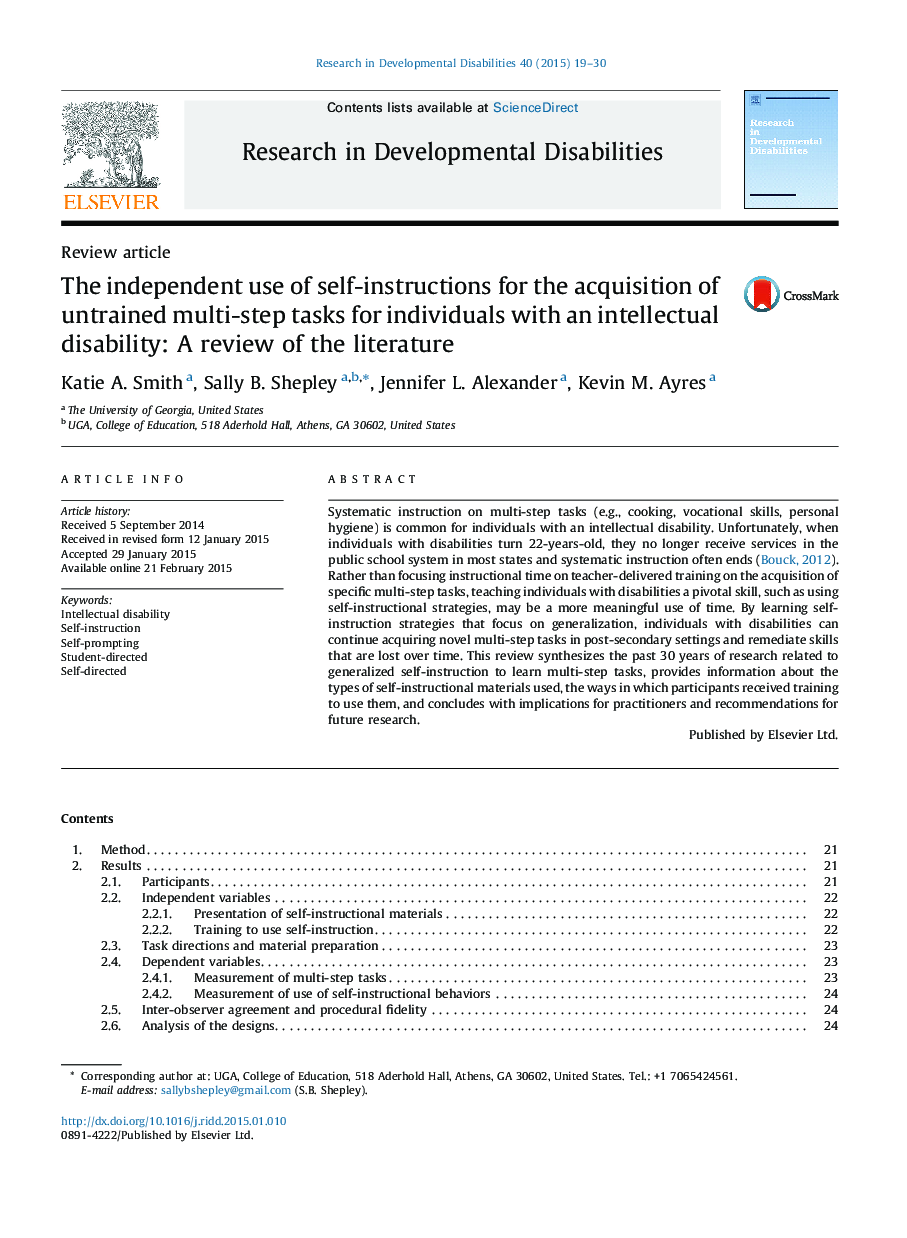| Article ID | Journal | Published Year | Pages | File Type |
|---|---|---|---|---|
| 371197 | Research in Developmental Disabilities | 2015 | 12 Pages |
•Synthesized 30 years of research on generalized self-instruction of chained tasks.•56% of included participants independently generalized self-instructional materials.•Generalized self-instruction creates opportunities to learn without instructors.•Future research should assess generalization across a variety of tasks and settings.
Systematic instruction on multi-step tasks (e.g., cooking, vocational skills, personal hygiene) is common for individuals with an intellectual disability. Unfortunately, when individuals with disabilities turn 22-years-old, they no longer receive services in the public school system in most states and systematic instruction often ends (Bouck, 2012). Rather than focusing instructional time on teacher-delivered training on the acquisition of specific multi-step tasks, teaching individuals with disabilities a pivotal skill, such as using self-instructional strategies, may be a more meaningful use of time. By learning self-instruction strategies that focus on generalization, individuals with disabilities can continue acquiring novel multi-step tasks in post-secondary settings and remediate skills that are lost over time. This review synthesizes the past 30 years of research related to generalized self-instruction to learn multi-step tasks, provides information about the types of self-instructional materials used, the ways in which participants received training to use them, and concludes with implications for practitioners and recommendations for future research.
